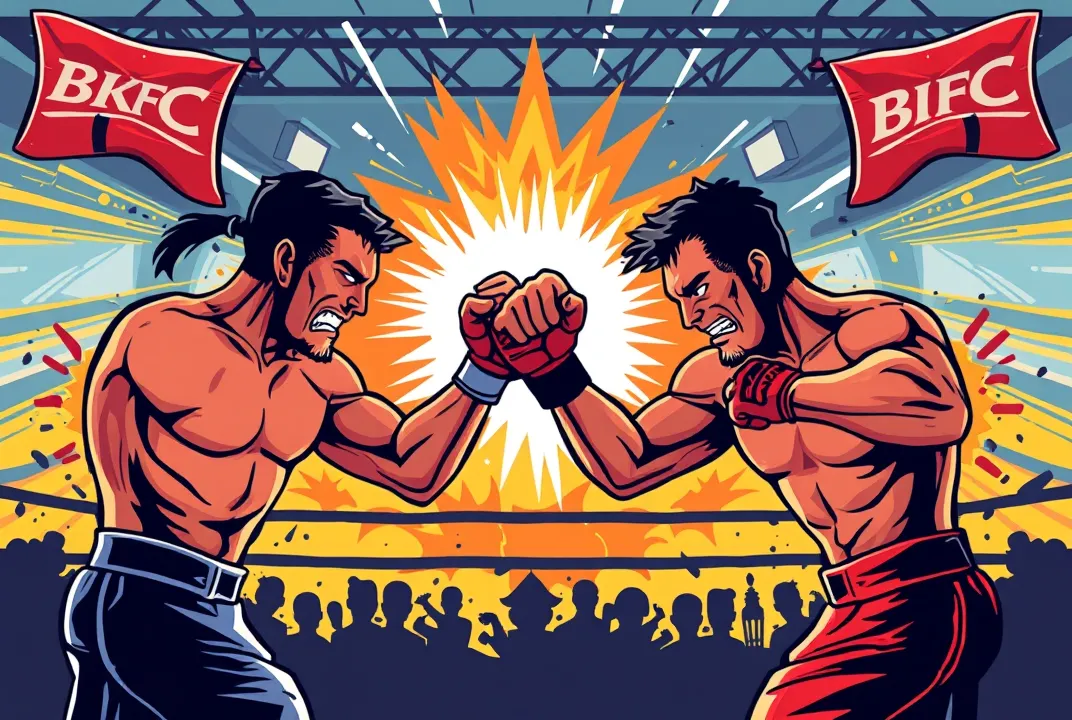Ultimate Showdown: The Rise of UFC and Its Global Impact
Mixed Martial Arts (MMA) has transformed into a global phenomenon, and at the heart of this transformation is the Ultimate Fighting Championship (UFC). Established in 1993, the UFC has evolved from a niche competition into a mainstream sports giant, fundamentally redefining the landscape of combat sports. This article explores the rise of this iconic organization and its substantial global impact, including its contributions to sports entertainment, cultural exchange, and the economy.
The Evolution of the Ultimate Fighting Championship
When the UFC first burst onto the scene, it faced significant criticism and legal challenges. Critics labeled it as barbaric and dangerous, often questioning the legitimacy of its rules and the safety of its fighters. However, as the organization began to implement standardized rules, weight classes, and health protocols, public perception shifted. The introduction of The Unified Rules of MMA in 2000 laid the groundwork for safety and professionalism in the sport, making it more palatable for mainstream audiences.
With a strategic rebranding effort that included the infamous acquisition by the Fertitta brothers and Dana White in 2001, the UFC began to mature. The organization invested in fighter development, training facilities, and events that emphasized athleticism over mere spectacle. This shift allowed for the development of a roster of elite athletes who showcased a diverse array of martial arts disciplines, from Brazilian Jiu-Jitsu to Muay Thai.
Driving Forces Behind Its Popularity
Several factors can be attributed to the meteoric rise of the UFC:
1. Star Power
The UFC has effectively created superstars, turning fighters like Conor McGregor, Ronda Rousey, and Georges St-Pierre into household names. These athletes have transcended the sport, capturing the public’s imagination and driving interest in events. McGregor, in particular, has drawn millions of fans to the sport with his charismatic personality and unparalleled fighting style.
2. Innovative Marketing Strategies
The UFC's marketing strategies have played a pivotal role in increasing its visibility. Social media has revolutionized the way promotions are held, enabling UFC to reach millions of fans directly. Behind-the-scenes content, fighter interviews, and explosive highlight reels have helped build a narrative around each fight, captivating audiences and creating a sense of anticipation.
3. Global Expansion
Unlike traditional sports leagues that tend to focus on specific regions, the UFC has made a concerted effort to expand its reach globally. Hosting events in countries such as China, Australia, and Brazil has solidified its international stature. By embracing fighters from diverse backgrounds, the organization appeals to a global fan base, representing various cultures and fighting styles.
4. Mainstream Network Deals
The UFC made headlines when it signed lucrative deals with major television networks, including a landmark agreement with ESPN. This partnership ensured that UFC events would be easily accessible to a wider audience, significantly boosting viewership and revenue. The success of pay-per-view events also has opened avenues for economic growth, with specific fights drawing in millions of buys, further legitimizing the sport.
The Cultural Influence of MMA
The impact of the UFC extends beyond the octagon, influencing various cultural phenomena. Acknowledging this influence encourages a better understanding of how this sport has cemented itself in contemporary society.
1. Gender Equality in Sports
One of the most notable cultural shifts has been the rise of female fighters in the UFC. Ronda Rousey’s journey from judo Olympian to UFC champion made her an icon for female empowerment, paving the way for other talented women in the sport. The UFC has since made significant strides by promoting female bouts as headliners, showcasing athleticism and skill alongside men.
2. Health and Fitness Awareness
As MMA has risen in popularity, so too has an increased focus on health, fitness, and mixed martial arts training. Gyms dedicated to MMA have emerged globally, providing accessible platforms for enthusiasts and aspiring fighters. Many people have adopted martial arts discipline as a form of fitness and self-defense, illustrating the sport’s broad appeal beyond just watching it as a spectator.
3. Breaking Down Cultural Barriers
The UFC has created a unique platform where various martial arts styles converge, allowing for a cultural exchange of techniques. This blending of traditional martial arts has helped foster an appreciation for different fighting customs, enhancing global understanding and interaction.
Economic Impact and Industry Growth
The influence of the UFC stretches into the economy, too, contributing significantly to job creation, tourism, and sports-related activities.
1. Job Creation
The growth of MMA has stimulated job opportunities in various sectors, from coaching and training to event management and broadcasting. As more fighters emerge, there is a growing demand for trainers, nutritionists, and physical therapists, contributing to an eco-system that nurtures talent.
2. Event Tourism
Major UFC events draw massive crowds, which significantly boosts local economies. Cities that host fights often see an influx of visitors, creating opportunities in hospitality, transportation, and retail sectors. The economic stimulation from high-profile fights can be substantial, with several events generating millions in revenues for host cities.
3. Sponsorship Opportunities
The UFC has become a lucrative platform for brands looking to engage with a young, vibrant demographic. This has led to a flood of sponsorship deals, driving additional revenue streams not only for the UFC but also for the fighters themselves. In turn, this promotes the fighters’ personal brand values, allowing them to become entrepreneurial figures in their rights.
The Future of the Organization
As the UFC continues to innovate and expand, it faces both challenges and opportunities. Emerging technologies, such as virtual reality and augmented reality, could enhance fan engagement, while concerns around fighter safety and performance-enhancing drugs require ongoing attention.
The potential for women's MMA remains vast, as the success of the sport continues to attract diverse talent. Expansion into new international markets, particularly in Europe and Asia, may also be on the horizon. The organization must navigate these waters carefully, ensuring that it maintains the integrity of the sport while also capitalizing on lucrative opportunities.
Conclusion
The evolution of the UFC has forever altered the landscape of combat sports. Through innovative marketing strategies, athlete development, and globalization, it has transformed itself from a controversial entity into a hallmark of modern sportsmanship. Its impact stretches across cultural, economic, and social dimensions, making it a notable player on the global stage. As it continues to evolve, the UFC is not only shaping the future of MMA but also contributing to a broader cultural dialogue that reflects our ever-changing world.


 Saturday Night Main Event: Relive the Thrills of Wrestling!
Saturday Night Main Event: Relive the Thrills of Wrestling!
 Unveiling the Explosive Rise of BKFC: The Bare-Knuckle Revolution
Unveiling the Explosive Rise of BKFC: The Bare-Knuckle Revolution
 Caroline Kennedy: Exploring the Legacy and Influence of a Modern Diplomat
Caroline Kennedy: Exploring the Legacy and Influence of a Modern Diplomat
 NBA All-Star 2025: What to Expect from the Ultimate Basketball Showcase
NBA All-Star 2025: What to Expect from the Ultimate Basketball Showcase